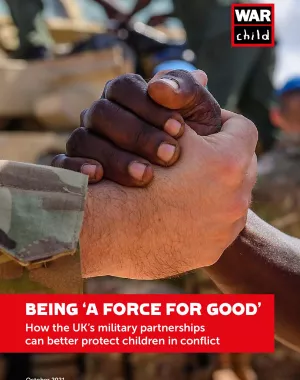Overview
The United Kingdom (UK) has a large and complex network of military support relationships with security forces across the globe. According to the recently published “Integrated Review of Security, Defence, Development and Foreign Policy” (Integrated Review), this network is set to expand further as the British Armed Forces will be deployed overseas “…more often and for longer periods of time, to train, exercise and operate alongside allies and partners across all our priority regions.” The backdrop to these plans is a world in which boys and girls are increasingly affected by armed conflict. Today, almost two thirds of children live in countries where wars are being waged.
The UK government has supported - through training, assistance and advice or air support - at least 8 countries armed forces which have committed violations against children including Iraq, Nigeria and until recently Afghanistan. Altogether these eight countries are responsible for over 3,000 violations though the true figures are believed to be much higher.
If the UK government doesn’t put in place measures to protect civilians within its military partnerships, then it could be implicated in rights abuses across the world and undercut its own ambition to be a “force for good” in the world. Though the UK should be merited for having played a very active role in protecting human rights around the world - from beginning the Preventing Sexual Violence initiative, to challenging states that are abusing human rights at the United Nations – War Child urges that much more could be done to hold military partners to account.
Based on insights from over 50 experts consulted by War Child UK, the report sets out a list of recommendations. These include strengthening political will, building knowledge and understanding of child protection concerns, ensuring accountability and oversight and promoting best practice. Moreover, they include embedding child protection at the heart of all UK military support relationships, and integrating detailed, practical training on child protection standards into all UK and overseas military training.
Download the report to read more.

